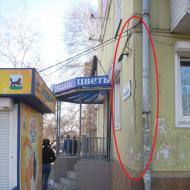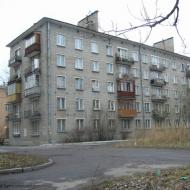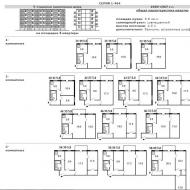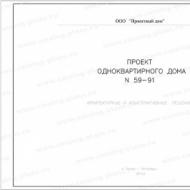
What are company shares. Why are shares of large companies issued?
Anyone can buy a piece of Gazprom, Sberbank or another public company. To do this, he needs to buy their shares.
The law "On the market valuable papers»The following definition is given of what a share is:
Stock- issue-grade security securing the rights of its owner (shareholder) to receive part of the profit of the joint-stock company in the form of dividends, to participate in the management of the joint-stock company and to a part of the property remaining after its liquidation.
Thus, the investor who bought the share becomes a co-owner of the company. And as one of the owners receives the rights to receive part of the profit and to participate in the management of the company, but also bears the risks associated with the activities of the company.
Shares can only be issued joint-stock company... The authorized capital of such a company is divided into shares - shares (a share in English means “share”). One share equals one share of capital. The number of shares owned by an investor determines his share in the enterprise.
Companies issue shares to raise money. By selling its shares, the company receives money for its development, and investors receive a share in the enterprise in accordance with the number of purchased shares. Unlike bonds, the company is not obliged to return this money to investors, they become its property. But investors can look forward to making a profit from dividends and an increase in the market value of shares.
Previously, shares were issued on paper and in the literal sense of the word were a "security". Now shares are issued in non-documentary form and data on them and their owners are stored in electronic form.
A share is an unlimited paper and is issued for an indefinite period. A share can cease to exist only in the event of the liquidation of the company, or its takeover by another company.
Types of shares
The share capital can consist of two types of shares - ordinary and preferred.
Ordinary shares constitute the basis of the share capital, according to the law, the capital of a company cannot be less than 75% of ordinary shares. The capital of some companies, for example, Gazprom, consists entirely of ordinary shares. Holders of ordinary shares have the following rights:
- voting rights at a meeting of shareholders
- right to receive dividends
- the right to receive part of the property of the company upon its liquidation after the payment of all obligations and the liquidation value of the preferred shares
Voting rights are the most important function of common stock. One share - one vote. The more common shares you have, the more influence you will have in resolving issues at a meeting of shareholders. Voting at the meeting is carried out using ballots. Voting ballots are sent by mail, the investor fills in them and sends them back. On many issues, decisions are made by a simple majority of votes - 50% plus one vote. But some questions require a qualified 3/4 majority of votes.
By owning a controlling stake (50% + one share), you can single-handedly make decisions in almost all matters. A blocking stake (25% or more) allows for vetoing.
Preference shares just like ordinary ones, they form the share capital of the company. Preferred shares have the following advantages:
- priority for payment over ordinary shares in the liquidation of the company - first, all creditors receive payments, then the owners of preferred shares, and then only the owners of ordinary shares.
- the amount of dividends is determined and spelled out in the charter of the company in the form of a certain amount of money, a share of net profit, as a percentage of the face value of a share, or a calculation method is given.
Dividends are paid only if an appropriate decision has been made on general meeting shareholders. Preferred shares do not have the right to vote, but if dividends have not been paid on them, they become voting shares.
The company issues preferred shares to avoid borrowing capital without increasing the number of shareholders with voting rights.
The dividend on preferred shares can be fixed, when its size remains unchanged, or variable, the size of which depends on the amount of profit.
The market price of common and preferred shares of the same company may differ from each other. On Russian market the price of preferred shares is often several percent lower than the price of ordinary shares. Some researchers attribute this to a “vote award”. In countries where the rights of minority (with a small share of shares) shareholders are often infringed upon and violated, common shares who have the right to vote are valued more, since they always vote at the shareholders' meeting, which means they allow them to defend their rights.
Another explanation is that for preferred shares the amount of dividend is higher, and for ordinary shares the amount of dividend not received is expressed in an increase in market value.
Share price
The cost of shares is nominal, issue, market, balance sheet.
It is determined during the creation of a joint-stock company and is spelled out in the charter. The par value is calculated as the amount of the share capital divided by the number of shares. The par value of the shares does not make economic sense and is not related to market value shares, and is only needed for the founders to buy shares at a certain price. The nominal price can differ from the market price by a factor of thousands.
Issue value of shares- the price at which the shares are placed on the market. The issue price cannot be lower than the nominal one. Due to the difference between the nominal and share price of a share, the company receives share premium.
Market value of shares- share price for secondary market... This is the price you can see on stock exchange... The market price of a share is formed during trading under the influence of supply, demand and liquidity.

Market value of shares
Based on the market value, the company's capitalization is calculated by multiplying the market price of shares by their number. The market capitalization of a company shows its value. Forbes magazine annually compiles the rating of the largest companies in the world Global 2000 Leading Companies. The largest company in the world in terms of capitalization in 2014 is Apple.

Book value stock Is the company's net asset value divided by the number of shares. Net assets Is the value of all assets of the company minus all liabilities. That is, the book value shows how much theoretically falls on one share if the company pays off all its debts and sells all the remaining assets. The book value of shares can be either lower or higher than the market value.
Today, information can often be seen in news broadcasts on television. economic nature, which also applies to securities, most often on stocks or indices of certain exchanges. Let's try to figure out what a company's shares are, why they are needed, where they can be bought and sold, and what can be got from all this in material terms.
Stock concept
As already noted, a share is a security that gives its owner the right to a certain share in the company's business. At the same time, you need to understand that it is possible to influence the activities of a particular company only if you own a large block of shares. Securities, in turn, may or may not guarantee income (bonds). The latter include shares.
Classification
When answering the question of what a company's shares are, you need to decide on their classification. They are divided into various types: electronic, paper, bearer, registered, etc., however, the most important classification for an investor involves their division into ordinary and privileged.
The owners of the latter receive guaranteed invariable dividends on the shares of companies, the preferred shares of which are in their ownership, but at the same time do not participate in the general meeting of shareholders and do not claim large payments if such a decision is made. Holders of common shares may not receive dividends at all if the board of directors decides to use the firm's profits for some other purpose, while holders of preferred shares will receive them anyway. The former have the right to participate in the general meeting of shareholders.

Trading company shares
Today legal entities issue non-documentary or electronic shares. The stock exchange of companies in Russia is the Moscow Exchange. It is on her on stock market shares are traded. It was formed at the end of 2011 as a result of the merger of the MICEX and the RTS, which by that time were the largest players in the stock and
The purchase of shares of companies is carried out from a specific brokerage account (a broker can be described as an intermediary - professional participant the securities market through which trading is carried out), which opens a certain individual, credits a certain amount there (the minimum differs for different brokers), after which it is necessary to choose a broker and conclude an agreement with him. After the conclusion of the latter, a current account is opened, from which money for the purchase of shares will be transferred to the broker's account. An account will also be opened in a depository to store shares and other securities there.

After that, you need to install the appropriate software, which will support trading on the exchange, the most popular of which is Quik. As you trade, brokers receive various reports that need to be studied in order to understand what is happening with the investments.
Shares of Russian companies are represented on the Moscow Exchange. They have a different cost for each current moment in time. Records of shares purchased by a specific individual are stored in the electronic register. If you doubt the availability of shares, you need to order an extract from the depository.

Trading in shares is carried out in the T + 2 mode, that is, settlements for completed transactions are carried out 2 working days after the end of the transaction. You can sell a share on the day of purchase. T + 2 - the mode, which is necessary, first of all, because if you count on them, then you need to purchase shares 2 days before fixing the register of shareholders.
Stock trading strategies
Stock Russian companies today, they are sold through the stock market through the implementation of one of the tactics: speculative or investment. The first is called trading and consists in playing on the value of stocks, as a rule, for a short period of time - from a few seconds to a day. In this case, a tool such as technical analysis is used. Investment investments are made when assessing fundamental economic indicators activities of a company, while there is a search for undervalued companies.

Speculative tactics involves the use of certain directions, called strategies:
- scalping (closing trading positions with the lowest possible profit);
- intraday, day trading or intraday trading;
- algorithmic trading (used;
- swing trading (trading positions are transferred to the next day).
Main investment strategies:
- value investing (buying shares at a lower value);
- bought and hold;
- dividend strategy (investment is carried out in stocks that will bring stable dividends);
- acquisition of growth shares (shares of fast-growing firms).
Earnings on the stock exchange

Today, stocks in companies traded on the stock exchange do not guarantee that buyers will benefit. None of the brokers and investors will be able to promise that the money invested in certain shares will definitely bring income and the investor will not incur a loss. You can only earn money by making competent investments, by conducting technical and
Ecommerce Stocks with Quik
The program itself can usually be downloaded from the broker's website, which provides a username and password for it. Next, we begin to understand. Go to trading terminal... We find the company we are interested in. We get into the trading glass. What is it here? Company shares, purchase price, sale price and lots. The latter can include in its composition either one share or several, each company has its own lot size. You will not be able to buy the number of shares less than the lot size.
Shares can be bought both at the current market price and at the price you declared with a waiting period until someone wants to buy these shares at the declared price. In addition, the program can be configured to buy and sell shares at the time they reach a certain price. Accordingly, if given price will not be reached, the purchase and sale of shares will not take place.
In addition to using the program, applications can be submitted by voice over the phone.
Taxation of shares
Profit received on the stock market refers to income, and, accordingly, personal income tax must be paid from them at a general rate of 13%. Tax agent a broker acts, he pays tax for an individual at the end of a calendar year or when withdrawing money from a brokerage account. Currently, brokers open using which, you can get tax deductions.
OTC stock market
In addition to publicly traded stocks, there are many small company stocks that are traded on the so-called over-the-counter market. Here, trading is carried out using information system RTS Board.
Illiquid assets are traded on this market. Transactions are made through a broker by phone. He searches through the aforementioned trading terminal for the shares we need at a price that suits us, or he can set our price and wait for someone to want to sell their shares at this price.
In addition, you can find the seller yourself through minorityforum.ru. After finding the seller, a call is made to the broker, and then he calls the counterparty to conclude a deal. Such a purchase is more profitable because it allows you to bargain.
A broker, both on the exchange and on the OTC markets, takes a commission, the amount of which is usually higher in the latter market.
Finally

So, to the question of what a company's shares are, one can answer that this is a tool that allows a company to develop, and an investor or speculator - to make a profit or go bankrupt. If you are hoping to get income, like on a deposit in a bank - having made a deposit, do not take care of it until the end of the deposit term, then you are most likely going to be ruined. To prevent this, it is necessary to use the existing possibilities of the fundamental and technical analysis, apply the strategies used.
It is hardly worth counting on large dividends in modern Russian conditions.
Shares of companies- these are securities that indicate that their owner has contributed to the capital of the company. The owner of the shares has every right to receive profit in the form of dividends. The amount of profit which the shareholder will receive depends on his share in JSC(joint stock company which can be open and closed).
Shares of companies are divided into:
- Ordinary
- Privileged
The owner of the former has the right to manage the company and vote during the shareholders' meeting. One share usually corresponds to one voice... The owner of ordinary shares is entitled to receive ordinary dividends.
The owner of preferred shares has a lot of rights. Namely - the right to be the first to make a profit with more high percentage for dividends.
How to start trading stocks on the stock exchange?
Russian platforms for stock trading: MICEX(Moscow Interbank Currency Exchange) and RTS (Russian Trading System).
In accordance with the legislation of the Russian Federation, only licensed specialized companies can trade on the exchange. The latter is issued by the Federal Financial Markets Service - Federal Service on the financial market.
Before starting to trade shares on the exchange, you need to settle the necessary technical moments... Below is a clear sequence of actions that an experienced trader should follow:
1. Finding a reliable brokerage company;
2. Conclusion of an agreement with;
3. Opening an account;
4. Transfer of a certain amount of money to the account (as much as you see fit);
5. Start trading on.
Factors affecting stock prices
There are many factors that influence the stock price. But you can simplify the understanding to two fundamental factors that add up to the cost:
- The desire to buy or sell shares on the part of other traders;
- The volume of buying and selling shares. If there is a majority of buyers, then there is an increase in quotations, but if people prefer to sell shares, we see them decline.
People will buy shares in a company if they are attracted to the profit, leadership, and prospects of the company. In the event that traders do not see the growth prospects of the company, they will certainly get rid of its securities. Also, stock prices depend on the general state of the country's economy and government actions.
© Copyright - OrderFlowTrading.Net | | | | |
DISCLAIMER: Conducting trading operations on financial markets accompanied by a high level of risk. The product of our company is software that allows you to obtain additional data for market analysis. The client, in turn, uses the received data at his own discretion. Any information on this site is provided for informational purposes only and cannot be taken as a recommendation for trading operations.
Cookies and privacy settings
How we use cookies
We may request that cookies be stored on your device. We use them to know when you visit our site, how you interact with it, in order to improve and personalize your experience of using the site.
To find out more, click on the category link. You can also change your preferences. Please note that disabling certain types of cookies may affect your experience of using the site and the services we can offer.
Necessary Site Cookies
These cookies are strictly necessary to provide you with services available through our website and to use some of its features.
Because these cookies are strictly necessary to deliver the website, refuseing them will have impact how our site functions. You always can block or delete cookies by changing your browser settings and force blocking all cookies on this website. But this will always prompt you to accept / refuse cookies when revisiting our site.
We fully respect if you want to refuse cookies but to avoid asking you again and again kindly allow us to store a cookie for that. You are free to opt out any time or opt in for other cookies to get a better experience. If you refuse cookies we will remove all set cookies in our domain.
We provide you with a list of stored cookies on your computer in our domain so you can check what we stored. Due to security reasons we are not able to show or modify cookies from other domains. You can check these in your browser security settings.
Google Analytics Cookies
These cookies collect information that is used either in aggregate form to help us understand how our website is being used or how effective our marketing campaigns are, or to help us customize our website and application for you in order to enhance your experience.
If you do not want that we track your visist to our site you can disable tracking in your browser here:
Other third party services
We also use different external services like Google Webfonts, Google Maps, and external Video providers. Since these providers may collect personal data like your IP address we allow you to block them here. Please be aware that this might heavily reduce the functionality and appearance of our site. Changes will take effect once you reload the page.
Google Webfont Settings:
Google Map Settings:
Google reCaptcha Settings:
Vimeo and Youtube video embeds:
Privacy Policy
This material is a kind of introductory lecture for those who want to start investing, but do not know where to start. If after reading it you want to go deeper into the topic, you can go full course training on the portal "Investments 101". The course materials were prepared in cooperation with professional traders and analysts from BCS Broker and combine theoretical blocks with practical exercises. So what are stocks?
Stock is a security that gives its owner the right to participate in the management of the company and receive a part of its profits.
In a simplified form, everything looks like this: an enterprise needs money for development, so it turns to investors for help, who give the required amount. In return, they receive ownership of a certain share of the company, expressed in shares.
The total par value of the shares must be equal to authorized capital joint stock company. Investors can be both individuals and legal entities, and their share in the share capital is determined by the ratio of the number of the company's securities in its ownership to the total volume of its shares. The company returns part of the annual profit to shareholders as dividends - a kind of gratitude for financial support.
Types of shares
There are common and preferred shares. The company can produce both of these types, or be limited to only conventional ones. The volume of preferred securities should not exceed 25% of their total number. The difference between the two categories is in the order of profit and the ability to influence the decisions that are important to the company.
Ordinary shares give the investor the right to participate in the general meeting of shareholders - the highest governing body of the joint-stock company. Payment of dividends on such shares is not guaranteed and is carried out only after the distribution of premiums between the holders of preferred shares.
Owners preferred shares they do not participate in the management of the company (except for making decisions on the reorganization or liquidation of the enterprise), but the amount of their dividends is greater than that of the holders of ordinary securities. The ratio of premiums on common and preferred shares is fixed in the charter of the joint-stock company. In addition, it is the preferred shares that have the primary right to receive payments at the end of the year.
Additional advantages are provided by the total number of securities owned by one shareholder:
- 1% of shares makes it possible to get acquainted with the list of other shareholders.
- 2% of the shares allow you to put issues on the agenda of the general meeting of shareholders and propose candidates to the board of directors and the audit commission.
- 10% of the shares give the right to convene an extraordinary meeting of shareholders and conduct an audit.
- 25% + 1 share - blocking stake. It allows you to reject decisions at the general meeting that require 75% of shareholders to agree to (amendments and additions to the charter, reorganization and liquidation of the company, as well as other issues related to the announced shares and the buyback of those already placed).
- 50% + 1 share - a controlling stake, which gives the owner the right to independently make decisions on all other issues discussed at the general meeting of shareholders.
- 75% + 1 share give the holder the opportunity to make any decisions on the management of the company.
How to make money with stocks
It is clear that the average market participant does not have enough securities to directly or indirectly influence the fate of a company. However, he does not need this, because the main purpose of buying shares is to make a profit. There are two ways to make money here: by receiving dividends or income from the difference between the purchase and sale prices of shares.
Dividend
The source of payment of dividends is the company's net profit, that is, the amount remaining after tax. The amount of dividends is determined based on the results fiscal year(in some cases - a quarter, half a year or nine months) at the board of directors, and then the decision is presented to the meeting of shareholders for consideration. Shareholders can approve the proposed payments or reduce them if they consider that the company needs more funds for successful development. Investors registered in the register of shareholders as of the reporting date have the right to receive dividends. This date cannot be set earlier than 10 or later than 25 days from the date of the decision on payment.
The procedure and term for the payment of dividends are determined by the charter of the company or by a decision of the meeting of shareholders. For ordinary shareholders, this period is no more than 25 working days from the moment the circle of persons entitled to receive dividends is determined.
The person representing the interests of the investor - the nominee holder and trustee registered in the register of shareholders - will receive his funds no later than 10 days from the same moment. During this period, cash dividends are sent to the recipient by postal order or transferred to his bank account.
Exchange difference
Receive additional income it is possible with the help of securities trading. You earn here on the difference between the cost of buying and selling - you bought it cheaper and sold it more expensive. It makes sense to choose common stocks for trading: their liquidity (the ability to easily buy and sell) is higher than that of preferred stocks. It is worth remembering that after the register is closed, the value of securities falls by about the amount of dividends paid. If you want to buy shares, this good time, and for a sale it is better to wait from a couple of months to six months: the share price, as a rule, returns to the previous level or even exceeds it.
Theory is theory, but it is still exciting to immediately plunge into trading. It is better to take the first steps in the simulator on the Investment 101 portal. The situation here is close to real, so you can calmly settle down without risking losing all your savings. When you acquire the necessary skills and feel confident in your abilities, you can proceed to real exchange trading.
Advantages of shares over bank deposits
It would seem, why study the financial performance of large companies-market players and form investment portfolio, if you can just take your money to the bank and after a while pick up the already slightly increased amount? You can, we don’t argue. But stocks have their own advantages, which make them a very attractive investment tool.
- The funds that you have deposited with the bank cannot be withdrawn until a certain period of time. You can buy and sell shares at any convenient moment - at least several times a day.
- The maximum amount of the deposit subject to insurance is 1.4 million rubles. If you had more money on your account, then in the event of bankruptcy or revocation of the license, you have to rely only on a partial refund of the lost funds. Stocks that are falling in price can usually be sold - and even then, you compensate some of the funds if you bought stocks at an even lower price.
- The potential return on shares is many times higher than the rates bank deposits... Dividends are taxed at 13%, but taking this into account, annual payments may be higher than on time deposits.
- In the case of stocks, you have more opportunities to personally influence the increase in your savings. The final profit is formed not only from dividends, but also from the price of securities.
As you can see, there is nothing terrible and incomprehensible in working with securities. Study the theory, apply it in practice, and you will see that the world's largest investors are not in vain investing their billions in stocks.
When an investor decides in which securities it is better to invest his assets, he should take into account a number of factors: the ability to earn, the availability of real estate, the size of loans, and other sources of income. Stock and bond - what to choose?
Financiers recommend young investors to invest in stocks. And when you retire, your choice of bonds will be smarter. There is nothing surprising here. Upon retirement, bonds will provide the investor with income comparable to receiving wages.
So what are stocks and bonds? What are their types? What are the differences? Let's start with the question of what a stock is.
Definition
Equity security, which speaks of the owner contributing funds to the statutory fund of the company and giving him the right to receive a percentage of the profit (dividends) from the activities of this company is called a share.
The owner of shares, in addition to his percentage of profit, is vested with the right to participate in the activities of the company, manage, own part of the property, if the joint-stock company is subject to liquidation.
What are the promotions?
These papers can be divided into two types. What is a common stock? This security grants the holder the right to participate in the collection of shareholders, voting and participation in the distribution of income received for reporting period... Usually the board of directors determines the amount and distribution of dividends that are paid from net income joint stock company.

What preferred share? This paper may provide its holder with some additional rights to manage the enterprise and fixes a fixed amount of the part of the profit that the holder receives in the form of dividends. The latter on preferred securities can also be paid from other sources, if it is prescribed in the Charter of the company.
Types of preferred paper
What is a Deferred Dividend Stock? This type is issued only for the founders of the company. Income on such securities is not paid until the dividend on ordinary shares reaches its maximum value, fixed in the Charter of the company. What other promotions are there? Read on.
What is a Participating Promotion? When the annual profit of the company is large, and the amount of dividends on ordinary securities is higher than those on privileged ones, then holders of securities with participation rights receive the same dividend as the owners of ordinary securities.
There are also convertible and non-convertible shares. The former can be changed to ordinary ones within a set period.
What is a cumulative and non-cumulative stock? At the end of the year with losses, the company cannot pay the percentage of income on preferred securities. In this case, cumulative securities allow the accumulation of the amount of dividends and upon receipt of the profit by the Company, they will be transferred in full. For non-cumulative dividends not received in previous years, no dividends are paid in later periods.
Difference between ordinary shares and preferred shares
When comparing these two types of securities, it becomes clear that common stocks are more attractive to strategic investors. They are seeking to buy a controlling stake for the management of the company, and they are not interested in the size of the dividends. Why is this type of stock being bought? They are aimed at owning the company.
Preferred shares are of more interest to investors who value dividends. After all, they will be paid in any case, regardless of the results of the profitability of the enterprise. However, this is also their disadvantage. The percentage of profit on such shares is a fixed amount, and when the company earns excess profits at the end of the year, the owners of these shares are still content with the previously agreed amount. During this time, holders of ordinary securities will receive a large profit.
How to release
So that the company's shares can participate in exchange trading, you should go through the registration procedure, or listing in another way. This will give the company an opportunity to attract additional capital, which is so necessary for development, increase competitiveness and receive additional advertising through the information channels of the exchange.

Price
The securities of this type have a par and a market price. Denomination - the amount of money indicated on it and showing which part is in Statutory fund corresponds to one promotion. Market price - the amount for which a share is sold and bought on the market at the moment. For example, since 1998, Gazprom shares have been issued with a par value of 5 rubles. The price of one such security today is around 140 rubles.
We have figured out what an action is. A definition of this type of securities has also been obtained. It's time to move on to one more type - bonds.
What is it
Bonds are debt securities that give the holder the right to receive a certain amount of money from the issuer.
Speaking simple language, a bond is an IOU. She confirms that the one who released her borrowed from the holder a certain sum of money and undertakes to return it after a certain time with interest.

This type of securities is stable and has low risks, thus being convenient for investment. Their profitability can be determined even before making a purchase. The investor can calculate in advance the income and assess the risks.
Basic types
There are many characteristics of bonds that can be categorized into types. Here are the main ones.
The issuer type has subdivided bonds into:
- Corporate (produced by enterprises).
- Foreign (foreign borrowers are responsible for the issue).
- Municipal (issued by local authorities).
- State-owned (the only one who can issue is the Bank of Russia).
By maturity, bonds are divided into:
- Indefinite (they have no maturity, they give the right to receive interest without repaying the principal amount of the debt).
- Long-term (extinguished after five years or later).
- Medium-term (from one to five years).
- Short term (three to twelve months).
The ownership order distinguishes bonds:
- Registered - the name of the owner is spelled out in the security, and the issuer makes a corresponding entry in the registration book.
- Bearer - any person can present for payment.
The loan repayment form divides all bonds into:
- Natural.
- Cash.
The nature of the appeal is divided into:
- Non-convertible - cannot be exchanged for other securities.
- Convertible - provide the holder with the right after some time to exchange bonds for other securities of the same issuer, for example, shares.
The income payment form allows you to subdivide bonds into:
- Floating rate securities. Income interest binds to any financial performance(refinancing rate, for example). When the indicator changes, the income percentage also changes.
- Fixed rate securities. The interest paid is negotiated in advance, and payments are made at a certain frequency (twice a year or otherwise).
- Mixed bonds. Such securities give the owner the right to receive income for some time at a fixed rate, and later at a floating rate.
- Discount bonds. No interest is paid on this security. The income is obtained on the basis of the discount (price difference). This security is sold at a price below par (a paper worth 1,000 rubles is sold for 800), and upon maturity, the difference will be income.
Stock and bond. Differences
The difference is already visible in the definitions. A bond is a debt paper. When purchasing bonds, an investor lends a certain amount in debt and becomes a lender, for which he then receives his income.
When buying shares, the holder becomes the owner of the share of the enterprise, in fact, he will be the owner and will be able to take part in the management.
When buying securities, whether it be stocks or bonds, an investor should carefully study the issue, view the indices, analyze the profitability and only then make decisions.















